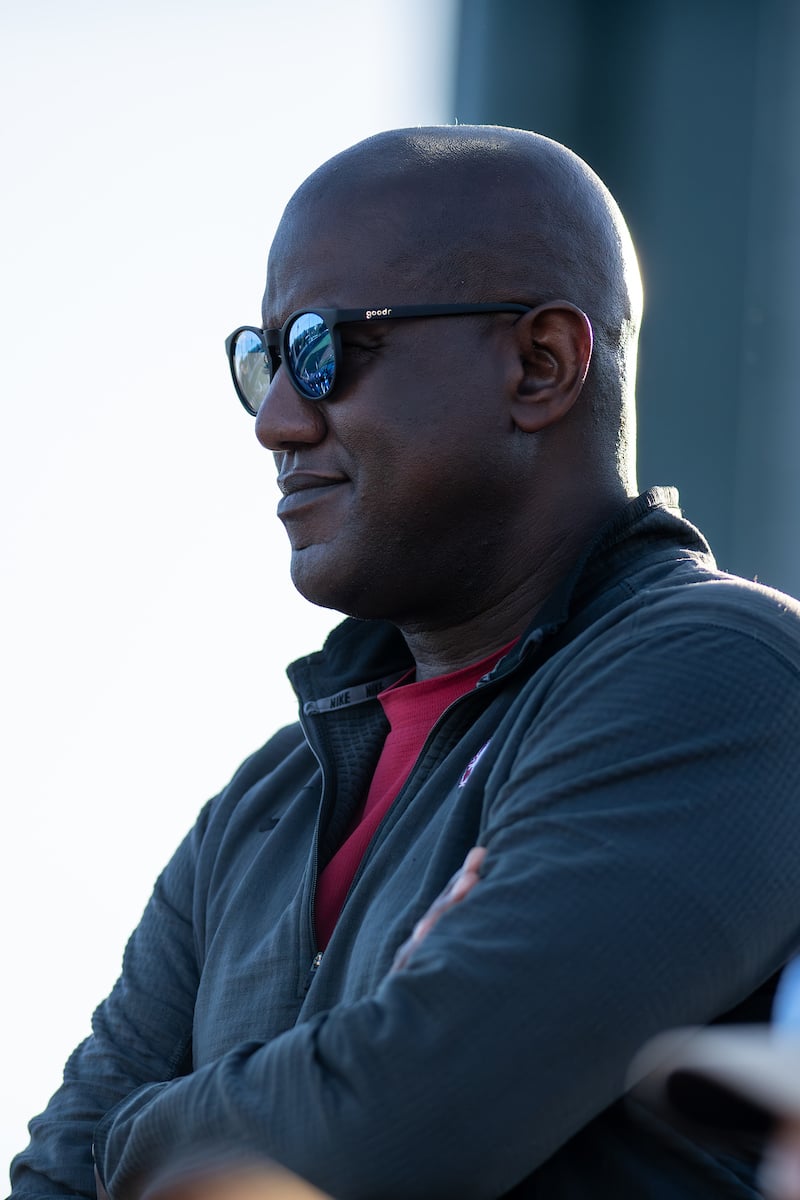The House v. NCAA settlement, an antitrust suit filed against the NCAA, is at the root of a sea change in college sports regulations.
Earlier this week, Judge Claudia Wilken ruled that the NCAA is obligated to perform back payments to former Division I athletes to the tune of $2.8 billion, and will allow schools to share up to roughly $22 million annually with student-athletes. However, it still remains unknown how the changes will affect Stanford, as Alden Mitchell MBA ‘03, Stanford Athletics’ deputy athletics director and chief operating officer, told alumni at a virtual panel on Thursday that the University is still deciding on a course of action in a post-House college athletics environment.
“As an institution, I can tell you we are treating this with the utmost urgency and a substantial level of serious analysis,“ Mitchell said. “We have been in very consistent contact with University leadership to begin developing an approach to these issues.”
Mitchell also said that in order to increase the revenues that are flowing into the athletics department, the University is beginning to diversify its revenue streams. On May 31, Coldplay will perform at Stanford Stadium and talks have begun to create serious brand partnerships with companies in Silicon Valley.
The event also addressed Stanford’s decision to leave the Pac-12 to join the Atlantic Coast Conference (ACC). Trustee Amy Brooks ‘96 MBA ‘02 defended the decision, saying that the move underwent extensive consideration, but it was ultimately concluded that Stanford athletes would have the best chance to play at a high level in the ACC.
“Our student athletes are nearly unanimous that they support the higher level of competitiveness, in spite of geographic challenges,” Brooks said.
Mitchell also shut down rumors that Stanford would be rejoining the Pac-12, noting that the University is signed to the ACC’s grant of rights until 2036.
Other justifications for the conference move were also discussed, such as the greater national exposure the switch awarded Stanford athletes. Brooks specifically mentioned that three Stanford football games were placed on ESPN’s top spot, which was exposure they did not receive in the Pac-12.
In 2020, Stanford announced that it would be cutting 11 sports before they were ultimately reinstated in 2021. However, Mitchell also said that Stanford would not consider cutting Olympics sports in the future due to revenue-sharing, noting the positive exposure that the 2024 Paris Olympics brought to the University.
Ultimately, Stanford Athletics will have to navigate the coming changes in a way respectful of Stanford values, alumni said.
“Whatever decisions we make, we have to do it in a way that’s authentic to Stanford,” said Howard Wolf ‘80, the vice president of alumni affairs.
A previous version of this article stated that trustee Amy Brooks indicated Stanford has not received the same exposure in the ACC as they have during this football season. The latest version of this article has amended the error to indicate this was instead the Pac-12. The Daily regrets this error.
